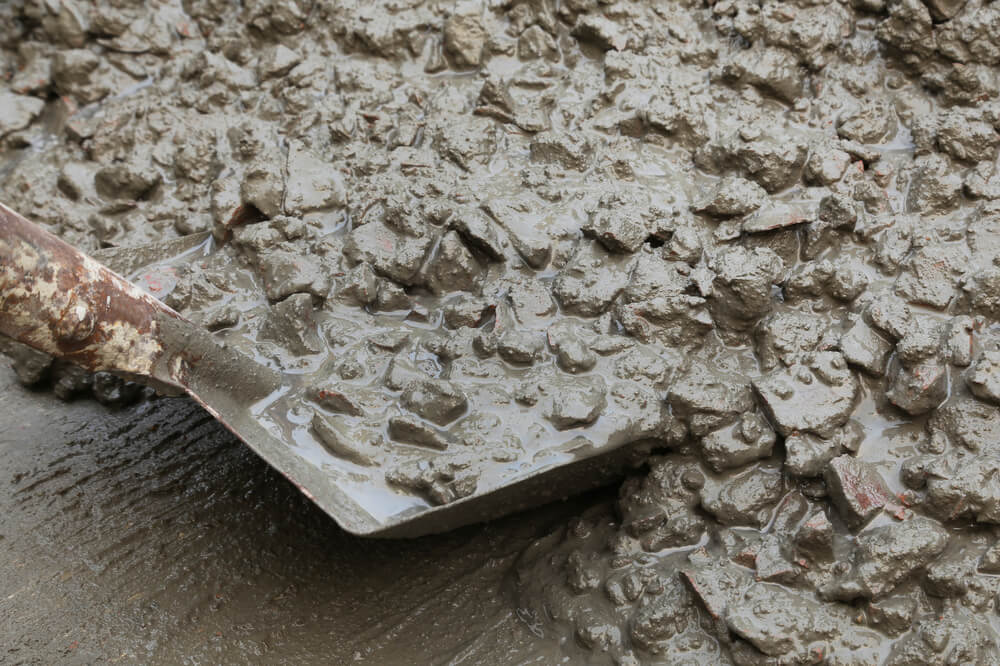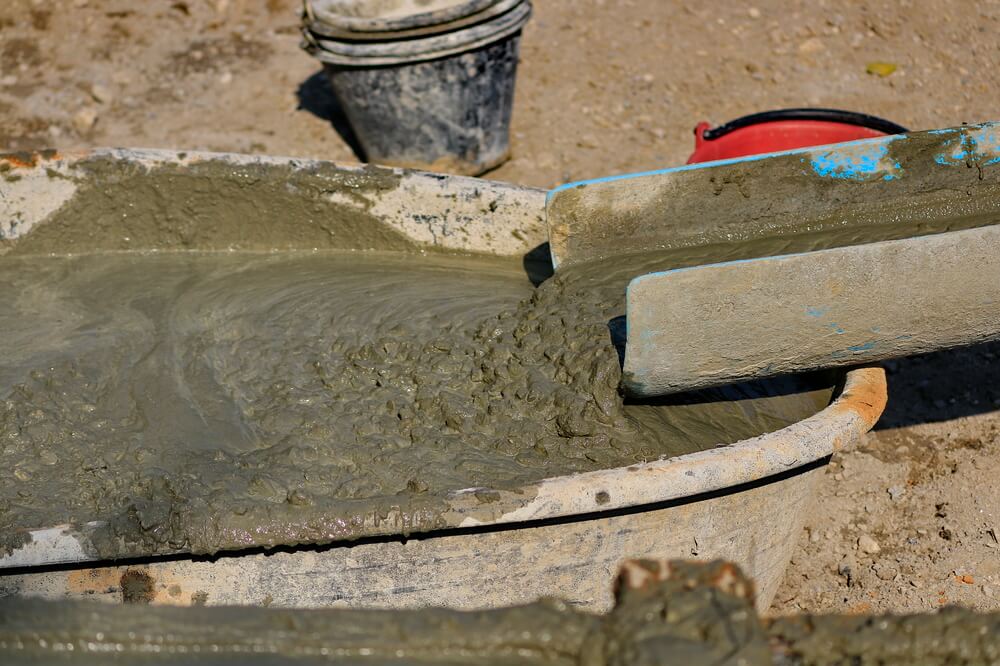Cement is made up of a lot of natural materials and that could make us think that it is eco-friendly.
But how true is that, is cement biodegradable?
Cement, although it is hewn from rock and earth, is not biodegradable. This is because of the way that the materials are extracted and also how they are mixed which harms the environment.
When cement sets it cannot biodegrade.
But perhaps you wonder what exactly it is about cement that makes it so bad for the environment. Is there a type of cement out there that is eco-friendly? You’ll find out more about this topic coming up next in this article.
Is Cement Harmful to the Environment?
To find out whether cement is harmful to the environment or not, let’s take a look at what it is made of:
| Ingredient in cement | Percentage in cement | Function |
|---|---|---|
| Lime | 60 to 65% | Forms silicates and aluminates of calcium. Makes the cement sound. Makes it stronger and helps it to set |
| Silica | 17 to 25% | Makes the cement stronger |
| Alumina | 3 to 8% | Helps the cement to set faster |
| Iron Oxide | 0.5 to 6% | Makes the cement harder and stronger |
| Calcium Sulfate | 0.1 to 0.5% | Prevents the cement from setting too quickly |
One could look at this material list and conclude that cement must be good for the environment. Besides, its raw materials are all natural.
But unfortunately, that is simply not the case. Cement is harmful to the environment. There are a few reasons for this.
The first is the method that is used to extract the materials. The second is how they are mixed. The third is how they are applied.
Let’s consider these in more detail. To extract these raw materials, large rocks such as limestone must be quarried into.
Sometimes materials such as slate and shales have to be blasted into. To do this, a lot of energy is required and quarrying machines are far from eco-friendly.
They disrupt and destroy the natural habitats of animals as they operate.
The materials used to make cement are then ground. After this, they are taken to a cement kiln where they are heated to temperatures as high as 1450 degrees Celsius.
This firing process burns fossil fuels and is very harmful to the environment.
The application of the cement also disrupts the natural habitats of animals and damages the ground’s ability to support plant growth.
Is White Cement Eco-Friendly?
Can we conclude that white cement is eco-friendly? To answer that question, we should remember that cement is not in itself eco-friendly.
So when comparing white cement to other materials, it is not eco-friendly. But when comparing white cement to other types of cement, we can say that it is the more eco-friendly option.
Why is white cement often linked to sustainable buildings? Here are a couple of reasons:
- White concrete absorbs less heat than darker-colored concrete. This helps the concrete to maintain a low surface temperature. This keeps buildings cooler and reduces ambient temperatures. If more buildings were made with white concrete, major cities would be cooler. This would have a part in slowing down the effects of global warming.
- White concrete stays cooler than darker-colored concrete. If a building is cooler, it will not need as much energy to keep it cool in the summer. This will reduce the amount of energy needed to cool it. Reduction in energy use is good for the environment.
- White concrete requires less site lighting than darker concrete. White concrete parking lots and sidewalks will need less illumination to maintain safe nighttime levels. The less energy that is used the better for the planet.
So what’s the verdict? White cement is often said to be eco-friendly because it helps us to cut down on our energy uses.
It keeps buildings cooler and that has a direct effect on global warming. It also helps us to reduce our energy needs for cooling and illuminating buildings or sidewalks.
These may only be small energy reductions, but when implemented in big cities, the results are staggering.

Why Is Concrete Eco-Friendly?
Although concrete does not biodegrade, there are a few elements of this building material that make it beneficial for use.
These benefits also make concrete an eco-friendly material. Here are a couple of factors that make concrete sustainable:
- It is energy efficient
- It is very durable. Pavements made of concrete should last between 30 and 50 years.
- It does not require much maintenance
- It is resilient against natural disasters and manmade disasters. Concrete does not rust, rot, or burn. This makes it very durable in nature.
Now we’ve spoken a lot about the good properties of concrete that make it an eco-friendly building option.
But it is important to mention that concrete is only relatively eco-friendly. When compared to other building materials, it stands out on top.
But, when you compare it to other materials in general, we cannot conclude that it is eco-friendly. Why is that?
The way that the materials are extracted to make concrete damages the environment. Quarrying disrupts the natural habitats of wildlife.
To make concrete, these materials must be crushed and then put in a kiln and fired at extremely high temperatures.
This process requires burning fossil fuels which again, damages the environment.
Final Thoughts
Cement is made up of calcium, silicon, aluminum, iron, and other materials.
Because it is made up largely of materials that you can quarry and extract from rocks, one could conclude that it must be an eco-friendly material.
But is that really the case? Is cement biodegradable?
This article has helped us to see that cement is not biodegradable. This is because of the way that the materials are quarried and mixed which is harmful to the environment.
Then, when the cement dries, it becomes rock solid and cannot biodegrade.
Fortunately, more research is going into the use of white cement which is better for the environment and more helpful to our planet.



